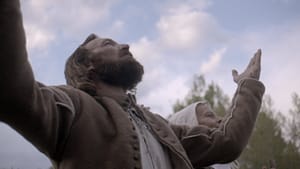Stay in the Loop
BSR publishes on a weekly schedule, with an email newsletter every Wednesday and Thursday morning. There’s no paywall, and subscribing is always free.
A special kind of dread
'The Witch' by Robert Eggers

Set in 1630s New England, The Witch follows a family of seven as they're excommunicated from their Puritan community and forced to fend for themselves in the wilderness. It's not explicitly stated what the father of this family did to deserve banishment, but it's clear that it was for being even more radically religious than the colony established precisely for radical religiosity. The family hopes their exile will prove to be spiritually beneficial (you know, without all those impious Puritans around), but a series of calamities descends upon them: one child disappears, serious illness befalls another, their crops are failing. What is causing this evil? A witch, of course.
The Witch could serve as a prequel to The Blair Witch Project. Aside from thematic similarities (evil witch lurking somewhere deep in the woods of New England), the two films share an undercurrent of anxiety that infuse the stories with a special kind of dread. As the characters realize they are left with few options of survival, their actions become increasingly erratic. They can't separate rational thought from growing desperation. In The Witch, of course, rationality is relative, since the characters’ every thought passes through a spiritual filter. (The crops are failing because they're cursed, not because the father isn't a gifted farmer.)
The Witch has an element lacking in most Blumhouse movies. Instead of jump scares, the increasing sense of dread arises from the uncertainty of how people are going to behave. Through this focus, as well as a few lingering and grotesque images, The Witch creates a world that feels stifling and claustrophobic, even though it's set in an open land with no one else around for miles.
The true success of The Witch is that at its core, it isn't a horror movie. (This may disappoint the average movie-goer, of course.) Writer-director Robert Eggers seeks not to scare you for the sake of sensation, but to create the fear felt by a young woman in the 1600s who finds herself as a scapegoat. The Witch makes you realize that Arthur Miller’s allegorical Crucible does a disservice to the girls it depicts by neglecting that emotional element.
The Witch builds a world where witches exist while simultaneously calling out the absurdity of believing in witches. It forces you to examine the implications of the religious doctrine that permeated the minds of these colonists, and how a higher premium was placed on the fear of evil than the wellbeing of a child. Or, how nearly 400 years later, the ripples of that doctrine still have a hold on our world.
What a scary thought.
What, When, Where
The Witch: A New-England Folktale. Written and directed by Robert Eggers. Philadelphia area showtimes.
Sign up for our newsletter
All of the week's new articles, all in one place. Sign up for the free weekly BSR newsletters, and don't miss a conversation.

 Angela Harmon
Angela Harmon